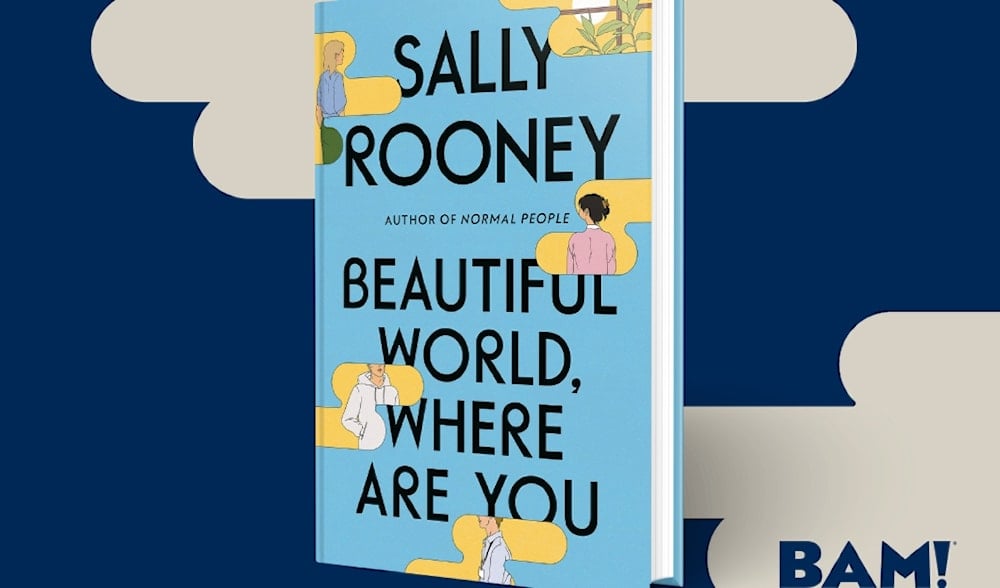'Can’t publish in UK' while Palestine Action is banned: Sally Rooney
Irish author Sally Rooney testifies that the UK’s ban on Palestine Action could halt her book sales and royalty payments, raising alarm over freedom of expression.
-

The cover of a book of Beautiful World, Sally Rooney (AP)
Irish novelist Sally Rooney told the UK High Court on Thursday that the government’s prohibition of the activist group Palestine Action may effectively bar her from publishing future work in Britain, citing her public support for the organization, according to local media reports.
Rooney, author of bestselling novels, wrote in The Irish Times back in August that she intends to use earnings from her books and related media adaptations to support Palestine Action. The group was designated a "terrorist organization" in early July following a direct action protest at an RAF base in Oxfordshire.
Rooney cautioned that the ban, imposed earlier this summer, could even jeopardize the availability of her current titles, with her legal team presenting her case as evidence of the prohibition’s broader implications for free expression, The Guardian reported.
The author described Palestine Action’s work as “courageous and admirable,” arguing that the group is driven by an effort to halt what it believes are crimes against humanity committed by "Israel" during its two-year genocide in the Gaza Strip.
In a written witness statement, the bestselling writer of Normal People and Conversations With Friends said the ban would effectively exclude her from the UK’s publishing industry. “It is … almost certain that I can no longer publish or produce any new work within the UK while this proscription remains in effect,” she wrote.
She added that if the proscription remains in force when her next book is ready, “then that book will be available to readers all over the world and in dozens of languages, but will be unavailable to readers in the United Kingdom simply because no one will be permitted to publish it (unless I am content to give it away for free).”
Concerns over royalties, availability of existing books
Rooney has stated that since the group was banned, she intends to donate the proceeds from her writing to Palestine Action, a decision that also led her to cancel a planned UK visit to receive an award due to fears that she could be detained.
The author stressed that the legal uncertainty surrounding the ban makes it difficult to assess its full consequences, but warned that her publisher, Faber & Faber, could be prohibited from paying her royalties. Should that occur, she said, “my existing works may have to be withdrawn from sale and would therefore no longer be available to readers in the UK.”
Unlawful restriction under international law?
Adam Straw, representing UN special rapporteur Ben Saul, told the court that a growing body of legal opinion views the proscription as an unlawful restriction under international law. He added that established definitions of terrorism “do not extend to serious damage to property,” referencing the group’s spray-painting of Royal Air Force aircraft in July, an incident cited by the government when issuing the ban.
However, Sir James Eadie, representing the Home Secretary, argued that defining terrorism is the prerogative of parliament. “Parliament has decided what terrorism is, which includes serious damage to property, whether or not alongside it there is violence against people,” he said.
The decision to ban Palestine Action and the subsequent warning directed at Sally Rooney have sparked broader discussions about the limits of free expression and protest in the UK.
Rooney’s books remain available in the UK, and the BBC continues to pay residuals for televised adaptations. However, experts warn that these payments themselves could become legally questionable in light of Rooney's stated intentions, placing both authors and broadcasters under potential scrutiny.
Proceedings continue as Gaza toll mounts
The judicial review is set to conclude on Tuesday, when the court holds its final day of hearings.
The case unfolds as the death toll from Israeli attacks in Gaza since October 2023 continues to climb. Nearly 70,000 Palestinians, most of them women and children, have been killed, and more than 170,000 injured.
In November 2024, the International Criminal Court issued arrest warrants for Israeli Prime Minister Benjamin Netanyahu and former Security Minister Yoav Gallant, accusing both of war crimes and crimes against humanity in Gaza.
Read next: Leaked UK intel exposes flawed ban on Palestine Action

 4 Min Read
4 Min Read








